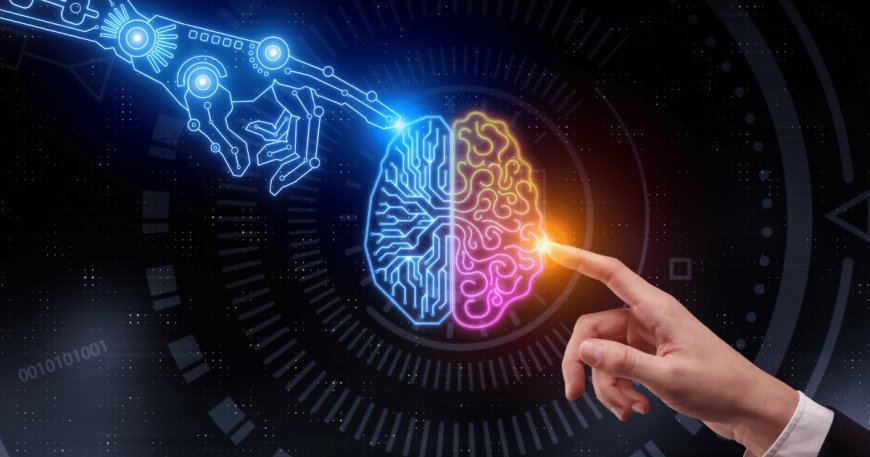Top 10 Technology trends that are going to Transform Humanity
Explore the top 10 technology trends transforming humanity, from AI and IoT to renewable energy and quantum computing. Learn how these innovations improve lives, drive sustainability, and foster global connectivity.

Technology has become the backbone of modern life, driving innovation, improving quality of living, and fostering global interconnectedness. Below, we explore the top 10 technology trends and how they benefit humanity, with additional insights into their economic impact.
1. Artificial Intelligence (AI) and Machine Learning
AI and machine learning are transforming industries by automating processes, enhancing decision-making, and enabling predictive analytics. They are improving healthcare diagnostics, advancing education, and optimizing resource management. According to PwC, AI is expected to contribute up to $15.7 trillion to the global economy by 2030, boosting global GDP by 14%.
2. Cloud Computing
Cloud technology allows businesses and individuals to store and access data remotely, reducing costs and increasing scalability. It enables remote work, online collaboration, and global access to resources, profoundly impacting education and business efficiency. The cloud computing market is projected to reach $1 trillion by 2026, with substantial contributions to GDP through increased business efficiency and innovation.
3. Internet of Things (IoT)
IoT connects devices and enables real-time data collection and analysis, revolutionizing healthcare, agriculture, and urban planning. For instance, IoT devices help monitor patient health remotely and optimize water usage in farming. McKinsey estimates IoT could generate $5.5 to $12.6 trillion annually by 2030, significantly impacting global GDP.
4. 5G Technology
The rollout of 5G networks is set to revolutionize connectivity, enabling faster internet speeds and supporting innovations like autonomous vehicles and smart cities. For individuals, it means improved telemedicine services, better remote learning, and seamless entertainment. Analysts predict 5G could add $1.5 trillion to global GDP by 2030.
5. Blockchain and Cryptocurrency
Blockchain technology ensures secure, transparent transactions, transforming industries like finance, supply chain, and healthcare. It empowers individuals by enabling decentralized financial services and enhancing trust in digital systems. The global blockchain market is expected to grow to $163 billion by 2029, boosting GDP by improving efficiency and trust in digital transactions.
6. Renewable Energy Technologies
Advancements in solar, wind, and battery storage are crucial for a sustainable future. These technologies reduce reliance on fossil fuels, lower carbon emissions, and ensure energy access for remote areas. The International Renewable Energy Agency (IRENA) projects that renewable energy could contribute $98 trillion to the global economy by 2050 through job creation and reduced climate change impacts.
7. Quantum Computing
Quantum computing promises unparalleled computational power, enabling breakthroughs in drug discovery, cryptography, and optimization problems. It has the potential to solve complex global challenges, such as climate modeling and pandemic response. Though still nascent, quantum computing could contribute billions to the global economy by the 2030s.
8. Autonomous Vehicles
Self-driving cars and drones are set to transform transportation and logistics. They can reduce traffic accidents, lower emissions, and provide mobility to people with disabilities or the elderly. Morgan Stanley estimates autonomous vehicles could deliver $1.3 trillion in annual savings to the U.S. economy alone by 2040, impacting global GDP through efficiency gains.
9. Cybersecurity Technologies
As digital transformation accelerates, cybersecurity has become essential to protect assets and data. It ensures privacy, safeguards critical infrastructure, and prevents cybercrime. The global cybersecurity market is projected to grow to $376 billion by 2029, safeguarding GDP by preventing losses from cyber threats.
10. Extended Reality (XR) – AR and VR
Augmented Reality (AR) and Virtual Reality (VR) are reshaping industries like gaming, education, and healthcare. These technologies enhance learning experiences, enable virtual surgeries, and provide innovative entertainment options. The XR market is forecast to reach $252 billion by 2028, driving GDP growth through enhanced consumer experiences and productivity.
These technology trends are not only shaping industries but also improving quality of life across the globe. By driving innovation, improving efficiency, and opening new possibilities, these technologies are creating a better future for humanity. Their economic benefits, though significant, are secondary to their transformative impact on society.



 Utej
Utej 





